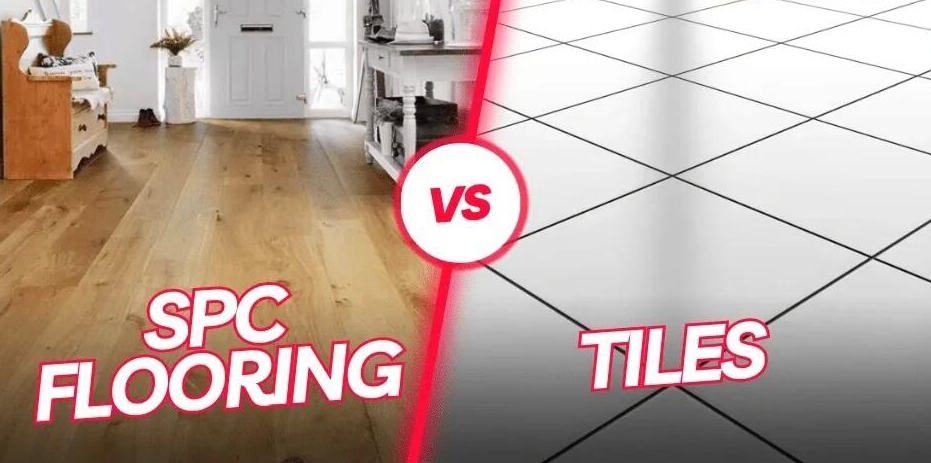
Choosing the right flooring for your home can be a daunting task, with a multitude of options available in the market. Two popular choices that often come up in discussions are SPC (Stone Plastic Composite) flooring and tiles. Both offer unique advantages and considerations, making the decision-making process challenging. In this article, we'll delve into the comparison between SPC flooring and tiles to help you determine which one might be better suited for your home.
Tiles, particularly ceramic or porcelain, are known for their durability and resistance to scratches, stains, and moisture. They are highly durable and can withstand heavy foot traffic, making them suitable for both indoor and outdoor use. However, grout lines between tiles can accumulate dirt and grime over time, requiring regular maintenance and cleaning to keep them looking their best.
On the other hand, SPC flooring is also renowned for its durability and resistance to wear and tear. Its rigid core provides stability and prevents dents, scratches, and stains, making it an excellent choice for high-traffic areas in the home. SPC flooring is also easy to clean and maintain, requiring only regular sweeping and occasional mopping to keep it in pristine condition.

When it comes to water resistance, both SPC flooring and tiles excel in their own right. Tiles, especially porcelain tiles, are inherently waterproof and impervious to water damage. This makes them ideal for bathrooms, kitchens, and other areas prone to moisture exposure.
Similarly, SPC flooring is also waterproof, thanks to its stone-plastic composite core. It can withstand spills, splashes, and even flooding without warping or buckling, making it an excellent choice for areas with high humidity or moisture levels.
The installation process for tiles can be labor-intensive and time-consuming, requiring skilled professionals to ensure proper alignment, grouting, and sealing. It may also involve additional costs for materials such as mortar, grout, and sealant.
On the contrary, SPC flooring offers a hassle-free installation process, thanks to its click-lock system that allows for easy interlocking of planks without the need for adhesive or grout. This makes it suitable for DIY enthusiasts and can help reduce installation time and costs.
Tiles come in a wide range of colors, patterns, sizes, and textures, offering endless design possibilities for homeowners. Whether you prefer a sleek modern look or a rustic charm, there's a tile option to suit your style and aesthetic preferences.
Similarly, SPC flooring also offers a variety of designs, including wood, stone, and tile visuals, allowing homeowners to achieve the desired look without the maintenance requirements of natural materials. SPC flooring can replicate the appearance of tiles with the added benefits of durability and water resistance.
In conclusion, both SPC flooring and tiles have their own set of advantages and considerations to weigh. While tiles are renowned for their durability and water resistance, SPC flooring offers similar benefits with added ease of installation and maintenance. Ultimately, the choice between SPC flooring and tiles depends on your specific needs, preferences, and the conditions of your space. By carefully considering these factors, you can make an informed decision that will enhance the beauty and functionality of your home for years to come.